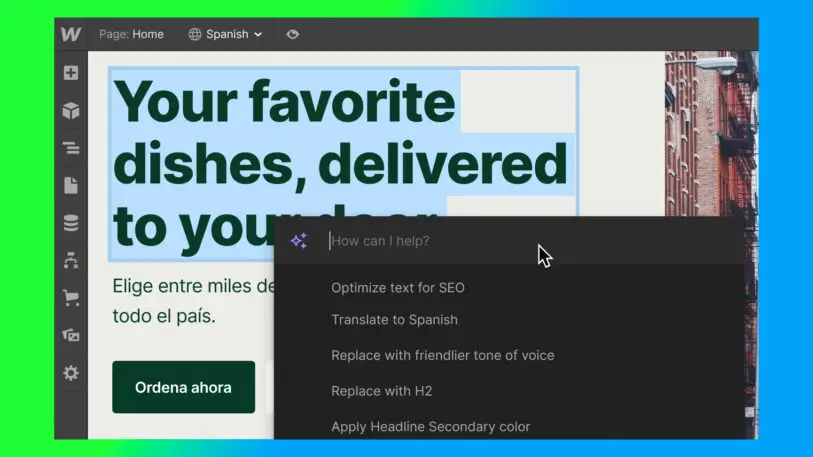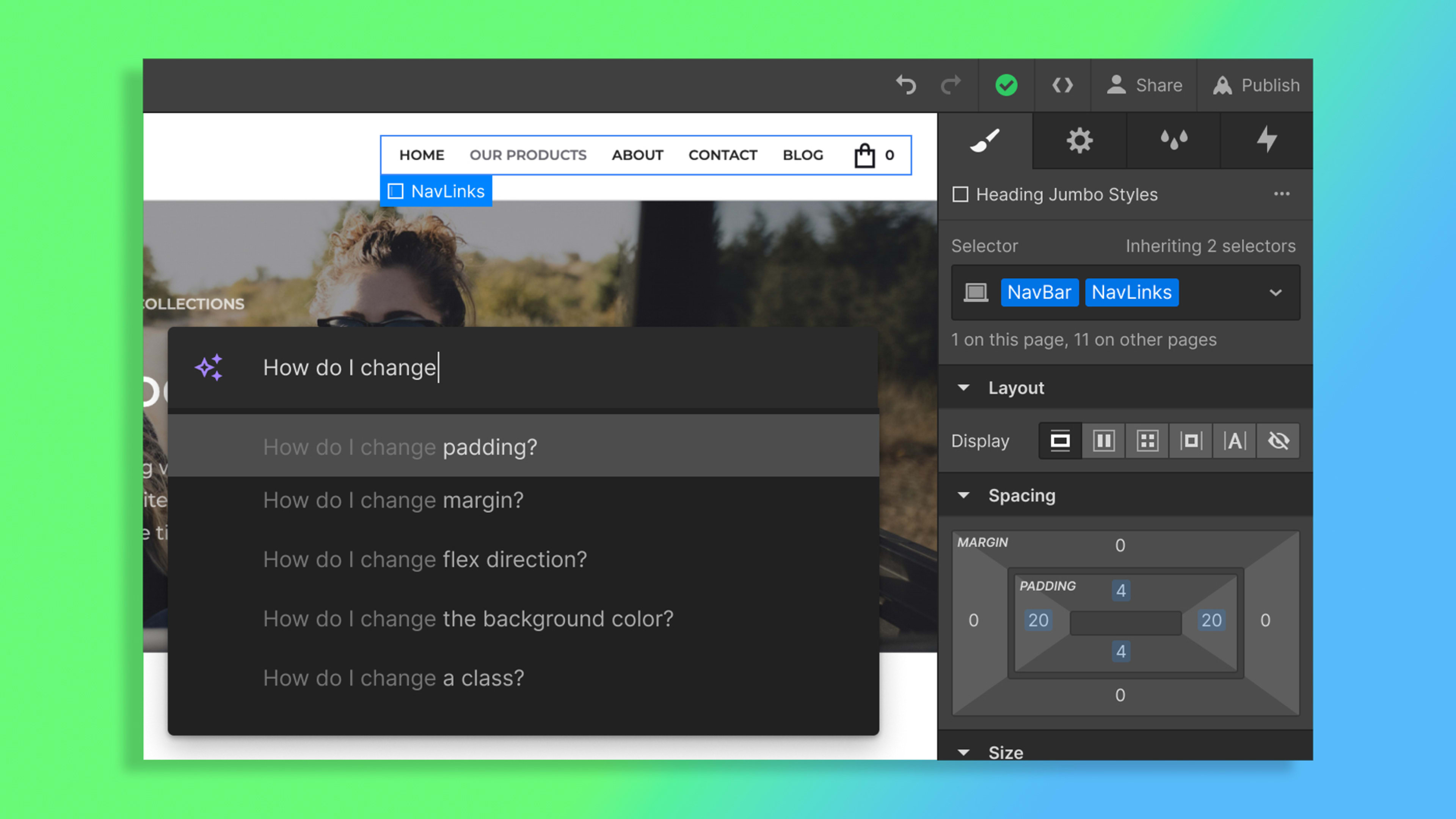Webflow made its name by offering designers a suite of no-code tools to create fully customizable websites. Soon, users may not even need to use those tools to generate a working site.
By this summer, the company plans to roll out a set of AI-powered features that will let users start with a pre-existing Webflow-provided template and quickly tweak it to their needs using verbal prompts.
For instance, someone building a site for a venture capital firm could grab a template designed for an event business and instruct the AI to restructure it to feature partner biographies rather than event examples.
“It’ll go through every page of that starting point and shift the content and the images to be more relevant to that prompt,” says CEO and cofounder Vlad Magdalin.
Users can then make manual tweaks and edits to the site using the existing palette of design features. A new AI interface will be able to quickly surface relevant sections of Webflow documentation to guide them. A separate new Webflow AI “copilot” interface will also directly make changes on demand, in response to a user’s text prompts.

In internal testing, people have successfully experimented with instructions like “make this look like Geocities” to give sample sites a retro ‘90s aesthetic. But Magdalin says more common use cases would likely be asking the AI to add a new section to a website—say, customer testimonials—that matches the existing look and feel. Users could even ask the tool to translate content into another language to appeal to international audiences.
Users will likely also be able to have Webflow’s AI generate a draft blog post from a few bullet points, Magdalin says. That’s something many have already documented being able to do with tools like OpenAI’s ChatGPT, but having AI built directly into Webflow’s content editing system will mean one less step for its users. Planned AI features will also be able to automatically generate some search-engine-optimized features of sites, like the titles and descriptions slurped in by crawlers from Google and Bing, as well as accessibility features like the alt text used by screen readers to describe images.
The company, which has raised more than $330 million, including a $120 million Series C round announced last year, hasn’t yet firmed up details on pricing and availability of the planned AI features, which are built with a mix of OpenAI’s GPT and some internally customized AI models. Many of the features are currently in limited alpha testing, and they’ll likely then move to broader beta testing, with how they’re made available and at what price point dependent on factors like usage and the pricing of external APIs, Magdalin says.
In recent months, AI has increasingly been integrated into creative tools. Modern generative AI first drew public attention through interfaces like ChatGPT and Microsoft’s Bing chat mode, but users ranging from businesspeople creating presentations to exercise enthusiasts crafting workouts quickly saw its potential in drafting longer-form content, even if it occasionally still makes baffling mistakes. Since the start of this year, Microsoft has announced plans to integrate AI assistants into its Office tools like Word and PowerPoint, Mailchimp has enabled AI to draft email marketing copy, and Adobe recently launched an AI-powered creative tool called Firefly.
At Webflow, Magdalin says the goal isn’t to replace the web designers who currently use the product. The AI tools are intended to make their work faster, but there are likely to be some elements of the design process that will still be easier to craft by hand using existing design tools (rather than giving commands to the AI). And, he says, having an AI assistant will likely make it easier for new users to master design tools.
“It opens up the door for people to learn these tools much faster,” he says. “I really do think it’ll move a lot more people into the space.”
Recognize your brand’s excellence by applying to this year’s Brands That Matter Awards before the final deadline, June 7.
Sign up for Brands That Matter notifications here.
